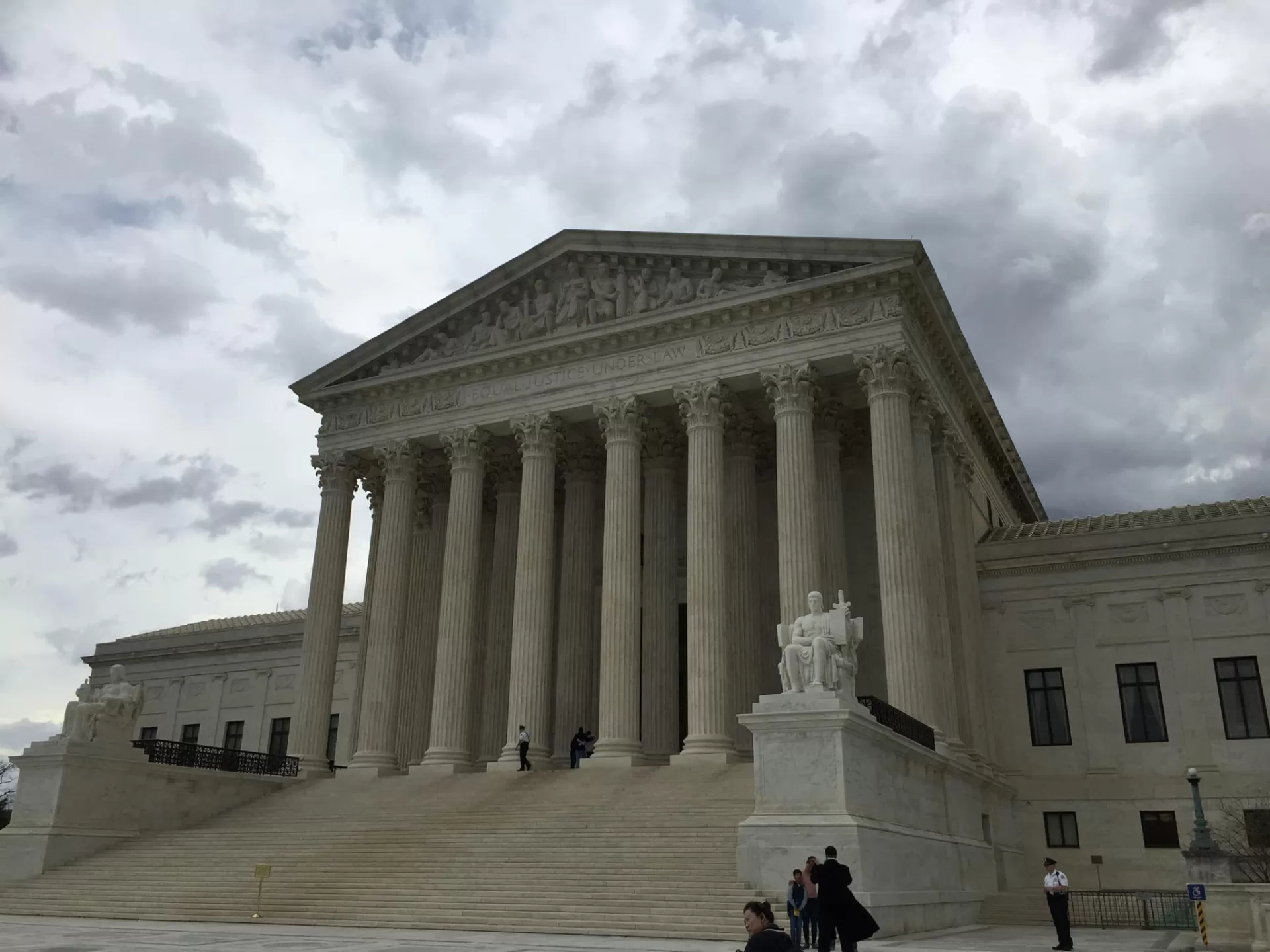“You shall not pervert justice. You shall not show partiality, and you shall not accept a bribe, for a bribe blinds the eyes of the wise and subverts the cause of the righteous. Justice and only justice you shall follow…” — Deuteronomy 16.19-20
“A false balance is an abomination to the LORD, but a just weight is his delight” — Proverbs 11.1
“He who justifies the wicked and he who condemns the righteous are both alike an abomination to the LORD” — Proverbs 17.15
“Woe to those who enact evil statutes And to those who constantly record unjust decisions” — Isaiah 10.1
“Should not the shepherds feed the sheep?…The weak you have not strengthened, the sick you have not healed, the injured you have not bound up, the strayed you have not brought back, the lost you have not sought, and with force and harshness you have ruled them” — Ezekiel 34.2, 4
The Real Target of the Confirmation Wars: An Originalist Approach in the Courts
Justice Anthony Kennedy came to the Supreme Court after a shattering sequence of retirement, rejection, and withdrawal by one sitting Justice, followed by two nominees both proffered by President Reagan late in 1987. It was a chance for the Democrats, having just recaptured the Senate in the previous year’s midterm elections, to continue delivering what blows they could to the President’s agenda. At a time when the Supreme Court appeared in another of those generational transitions, following the rise of Rehnquist as Chief Justice with Justice Scalia joining the Court in the midst of Reagan’s fifth year, the prospect of effectively restraining the deeply-established activism purveyed by Justice Brennan seemed within reach for the first time in over a decade. It was all too much for the new Senate majority to miss so crucial an opportunity.
Some, like Judge James Robertson regret what role he played in commencing a “Thirty Years’ War on judicial nominations” while others, like Mark Gitenstein revel in the Senate Judiciary Committee’s desperate and patently absurd mischaracterization of Judge Bork and the judicial approach he championed. It was the latter (the approach), infinitely more offensive than the former (the person), which provoked the ire of the Senate’s attack. This was not merely the routine, constitutional exercise of Senate checks and balances back then any more than the encore performance during Justice Thomas’ confirmation hearings in 1991. Of course the political implications of that shared judicial philosophy mattered immensely (as they do even more now) but the competent exposition of its principles through the highest profile Court in the land made an intolerable combination to those wedded to enacting personal preferences upon an entire nation via a sovereign Judiciary.
Even more, for a Court which has been in search of a sustainable alternative to counter originalism since abandoning it completely for the arbitrary, piecemeal wish lists of lawyers and politicians, it becomes quite obvious why a systematic and temperate approach like originalism is so odious to judicial activists and those who defend them. Simply put, originalism is the interpretation of constitutional, statutory, regulatory, and procedural clauses on the basis of their original plain meanings at the time of enactment only insofar as each pertains to the case being heard. By restraining human opinion to what the law means, it preserves the rule of law above the will of any human being and protects the rights and responsibilities of us all. Without that vital restraint, we are witnessing the collapse of the law itself.
The next confirmation process is sure to manifest what has tragically become an ugly but expected norm: an unhinged opposition to any nominee, however competent, with a litany of character assassination attempts (the kind and quantity determined by the nominee’s failure to embody the requisite checklist of the appearance, gender, or race culturally current) joined with still more dehumanizing invective which divides people into types and categories while proclaiming “justice” to them all. This mockery of justice does not harm one victim only — whomever the next nominee will be — but is a mockery of what unifies us as people. It is a mockery of the mechanisms that protect our rights and responsibilities. It will be another manifestation that our fragmented worldview prevailing not only among members of the Court and the Senate but surfacing across the culture has and will continue to fail us.
If we fail to understand humanness, we will consistently fail to understand the nature, scope, and virtue of justice. Dividing one another as just so many fragments in an unconnected world is, at its center, a denial that we are, in fact, all human whatever our background, that we can and do share in a common nature, feel a common sympathy, possess a common respect, and are capable of a common understanding not only for the situations of others but the facts of those situations. Confirmation hearings merely give expression to the success of Brennan’s judicial activism eviscerating us all even today.
It seems the Court so rarely “gets it right” these days, that when it does happen, enthusiasm overwhelms the concern for how it was accomplished. The judicial victory of today – if not secured on a consistently applied approach – will be tomorrow’s defeat, whatever your political or ideological view. If any interpretive tool will do, then the hammer in “your guy’s” hand will become the pry bar in others’ hands. This consistently applied approach must start with the original meaning. The Court which can decide what the word or phrase should mean may define it correctly but without the conscious effort to do so consistently, governed by a unified, internally consistent approach, they will just as eagerly decide on a different meaning in the future from some other source beyond what it meant when enacted. This adoption of a consistent method and purpose will not be done through the Court itself nor through the Senate alone. It will come through Christians taking up citizenship once again and exercising the God-given role of engaging our culture daily. Who better equipped than the Lord’s own to do this?
If the calm confirmation of Justice Kennedy thirty years ago persuaded anyone at the time that the storm was finally passed, we can clearly see now it was all an illusion. This is not another call to remove politics from the process or even to complain about polarization in Washington. Politics has been there since the rejection of John Rutledge by the Senate in President Washington’s time. Nonetheless, the Beltway has been dysfunctional for so long, “polarization” is but the result when consensus instead of transparent governance becomes the preeminent value among lawmakers. Politics will and should remain because it is the most effective means of expressing the consent of the governed in our Republic. The Congress can abide politics, however; The Court must not. Instead, this is a reminder that the real culprit here is not a particular nominee, a President, or a personality of any party, but over how the Judiciary is supposed to work and the approach it should use to fulfill that role.
Justice from ages past was personified blindfolded for a reason that should interest and concern us all. Her blindness protected our interests and ensured our welfare. It meant she was blindly disinterested to all the incidentals, blind to all the superficial particulars, blind to color, race, age, gender, economic bracket, and social position so that true fairness could be dispensed without prejudice tainting the result, either for or against the parties involved. In this way, justice is upheld and honored, while rights and obligations are protected. Justice Brennan’s activism sought to remove the blindfold and in the name of what was fair and compassionate to see those involved incapable of obtaining justice until their appearance and background outweighed the rightness or wrongness of their cause. In this way, the world could be remade as it suits the judge instead of what the law says based on what it meant. It is this outlook, despite producing more than one solid opinion, that prevailed in the approach of Justice Kennedy. Those who have rejoiced over his career will fight this next confirmation fiercely. For them, the Court achieves what no election, regulation, or statute can.
The law, like clay in the hands of countless potters, needs a unified purpose to give it shape and form. Without that unity and consistency, the clay will set up but by attempting to do everything, accomplishes nothing. If the Court cannot agree on what it is there to do and how to do it, the inevitable outcome will be equally as haphazard and arbitrary with devastating consequences for all of us. Without a consistent approach to judicial interpretation, observing the inherent limits of original meaning, the law is whatever a single individual decides it to be at a given time and that for only as long as the next individual does not overrule the decision. If we keep down this path, there will be no law we could write able to withstand such authority, no popular referendum honored, no process of law capable of being rendered, only the random determination of one person’s thoughts from a particular instance in time.
Under such a regime, the law affords no protection to the weak from the strong, no voice for the speechless, no advocate for the helpless, and no power to withstand a few dictating any number of terms to the rest of us. It entrusts infinite wisdom and expansive judgment to the subjective sentiments of individuals instead of application to a concrete principle. This is the very opposite of justice. It is this imposed confusion that remains Brennan’s legacy.
The conflict that is before us devolves on one simple question: Will we be a people governed by justice, revering an orderly, consistent, transparent approach to the law or will we defer to what you look like, pandering to the notion that we are all victims in “life’s lottery” which only an empathetic, understanding court can remedy by replacing what the law says with what a few wish the law to be (conveniently bypassing the tedium of representative government) until the law itself becomes meaningless with no clearly defined way to apply it?









